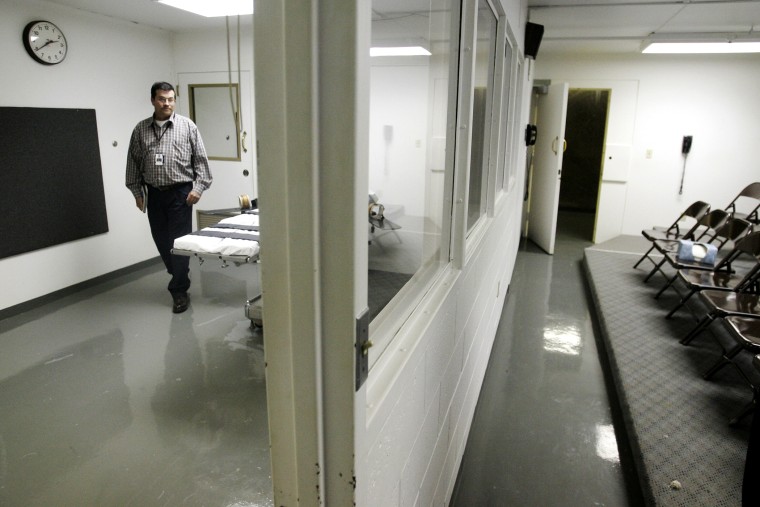The lives of two men on death row have been spared, at least for now, because Oklahoma lacks the necessary drugs for lethal injections.
The Oklahoma Court of Criminal Appeals announced Tuesday the approximate one-month delay for the executions of Clayton Lockett and Charles Warner.
Lockett was originally scheduled to die on Thursday, but that date’s been pushed back until April 22. Warner’s execution date of March 27 has been likewise postponed until April 29.
"I am upset that justice is once again delayed for Stephanie Neiman, young Adrianna Waller and their families,” Attorney General Scott Pruitt said in a statement Tuesday. “Rest assured, accountability for these murders will occur. It's not a matter of if these punishments will be carried out, but it is only a matter of when. We owe it to the victims, to their families, and to the juries who imposed these sentences for our criminal justice system to work efficiently, truthfully and without delay."
Some pharmaceutical companies have stopped carrying lethal injection drugs over ethical concerns, contributing to a nationwide shortage. That has forced Oklahoma and other states that still use the death penalty to scramble to find new suppliers.
Lawyers for the convicted killers filed a lawsuit demanding the state reveal details on the specific drugs they plan to use.
"We are deeply relieved that the OCCA's decision allows Mr. Warner and Mr. Lockett to proceed on their constitutional challenge to Oklahoma's execution-secrecy law and execution protocol,” said Madeline Cohen, one of the attorneys for Warner. “We hope that no execution will go forward until we are able to obtain full information about how Oklahoma intends to conduct those executions, including the source of its execution drugs."
Two alternative modes of execution also exist under Oklahoma law: electrocution and death by firing squad – but that’s only if a court deems lethal injection unconstitutional. Since the delay is the result of a drug shortage, the state can't switch course in this case, Oklahoma Corrections Department spokesman Jerry Massie told the Associated Press.
The court warned if the state cannot acquire the sought-after drugs – a combination of pentobarbital, an anesthetic and vecuronium, a paralytic agent -- it would have to put a new execution process in place, most likely tying up court proceedings even longer.
At least one family member of one of the death row prisoner said the holdup isn’t welcome. Ladonna Hollins, Lockett's stepmother, said he’s ready to die. "He wants it over with," she said. "He's tired of living in these conditions. It's torture."
"We do not want to see Clayton executed but we know that’s going to happen," Hollins added. "Why do they not have the correct drugs? This is crazy."
Lockett was found guilty of the 1999 murder of a 19-year-old woman who was raped, shot and buried alive.
Warner got the death penalty after being convicted of raping and killing his girlfriend's 11-month-old baby daughter in 1997.
